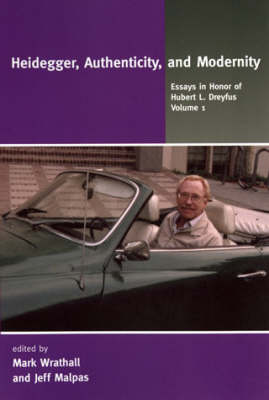The MIT Press
2 total works
For more than a quarter of a century, Hubert L. Dreyfus has been the leading voice in American philosophy for the continuing relevance of phenomenology, particularly as developed by Edmund Husserl, Martin Heidegger, and Maurice Merleau-Ponty. Dreyfus has influenced a generation of students and a wide range of colleagues, and these volumes are an excellent representation of the extent and depth of that influence.
In keeping with Dreyfus's openness to others' ideas, many of the essays in this volume take the form of arguments with various of his positions. The essays focus on the dialogue with the continental philosophical tradition, in particular the work of Heidegger, that has played a foundational role in Dreyfus's thinking. The sections are Philosophy and Authenticity; Modernity, Self, and the World; and Heideggerian Encounters. The book concludes with Dreyfus's responses to the essays.
Contributors
William D. Blattner, Taylor Carman, David R. Cerbone, Dagfinn Follesdal, Charles Guignon, Michel Haar, Beatrice Han, Alastair Hannay, John Haugeland, Randall Havas, Jeff Malpas, Mark Okrent, Richard Rorty, Julian Young, Michael E. Zimmerman

